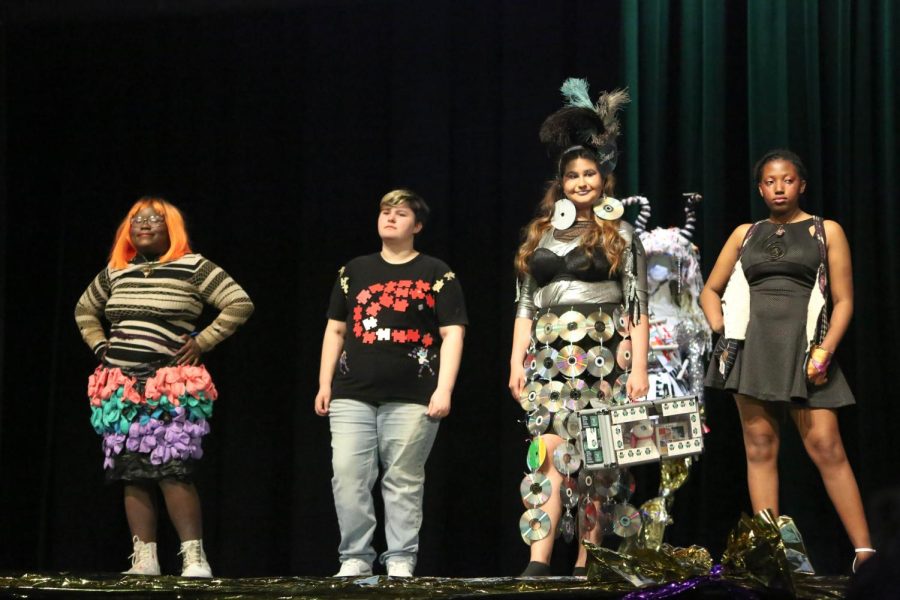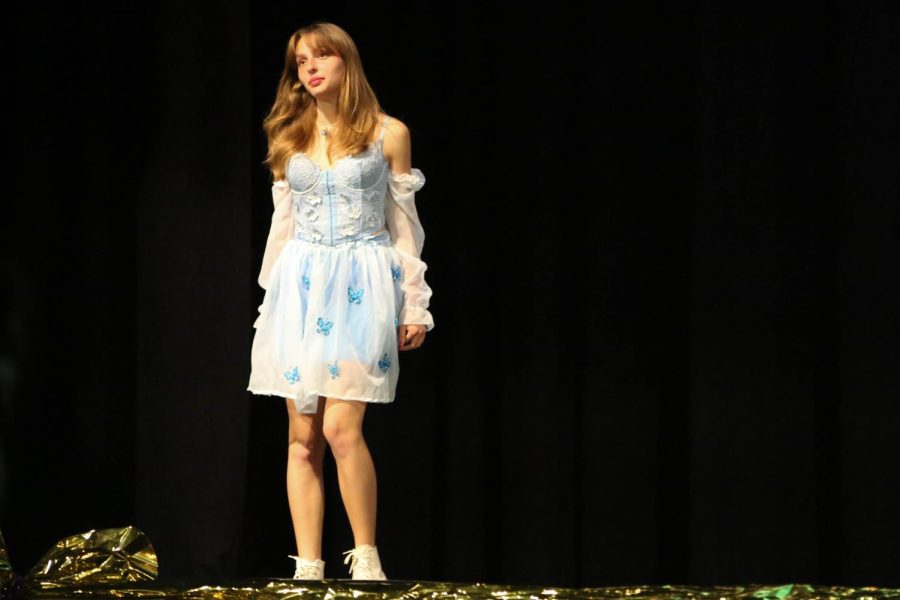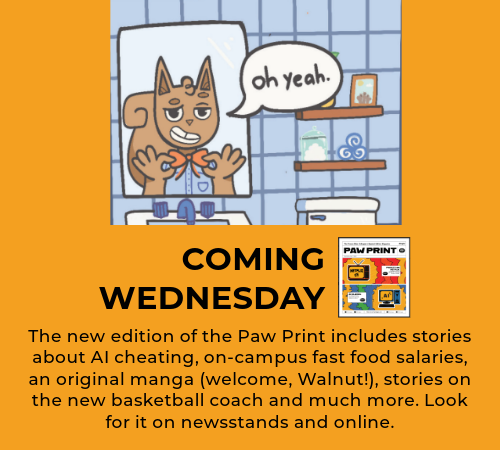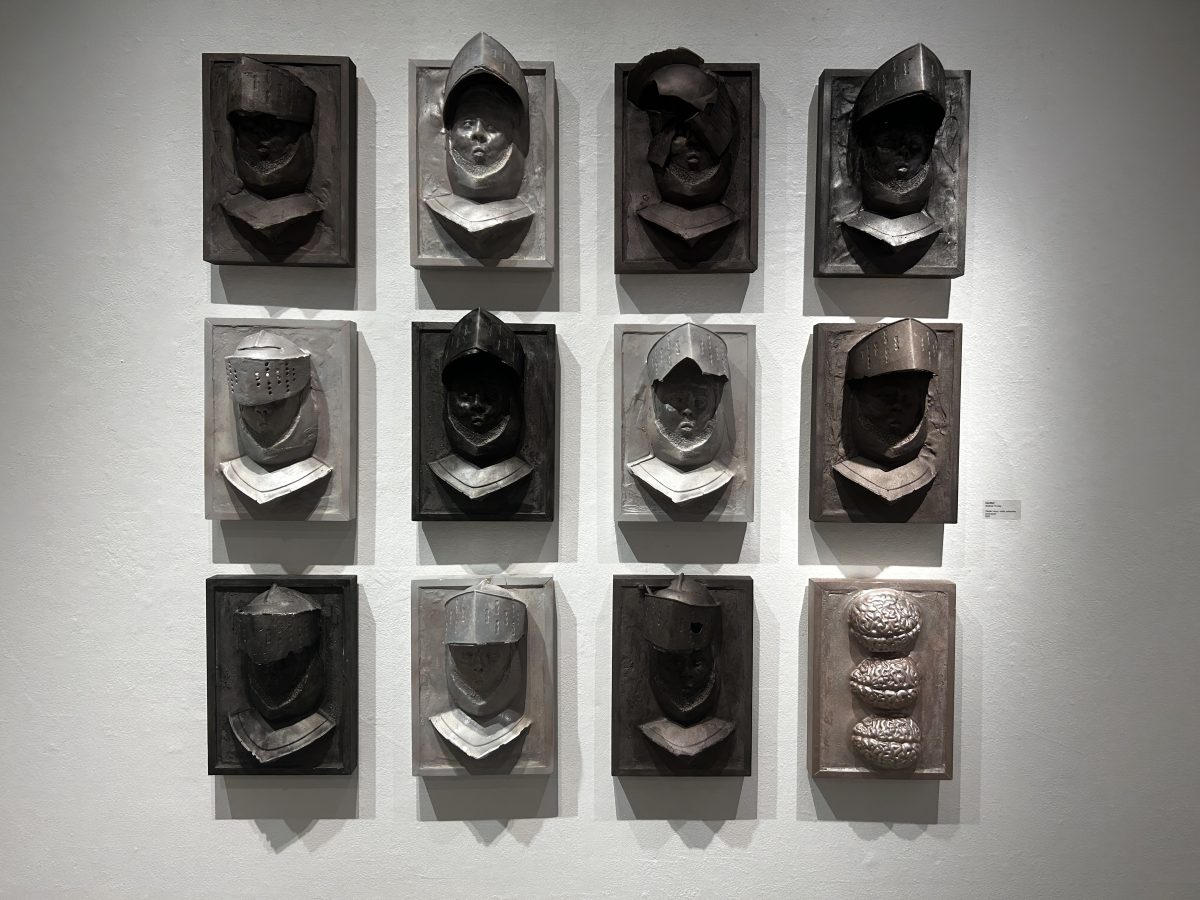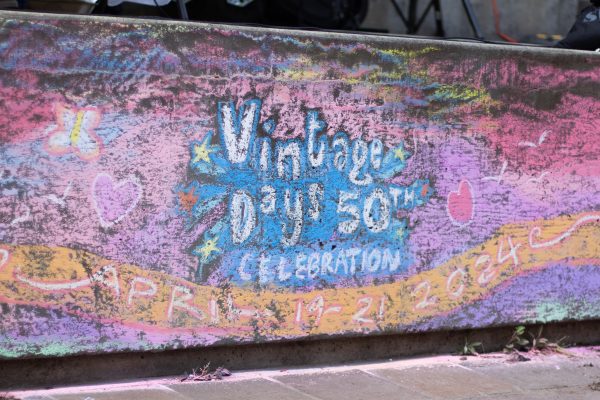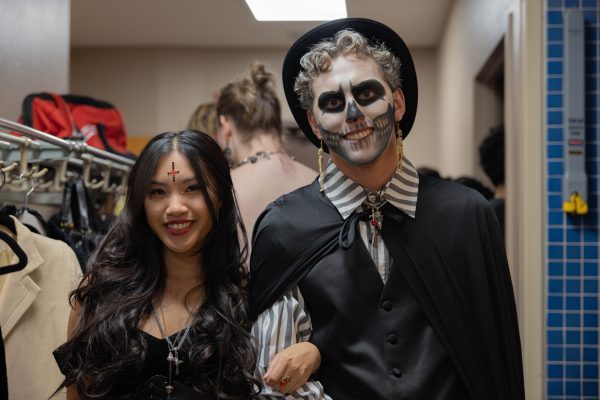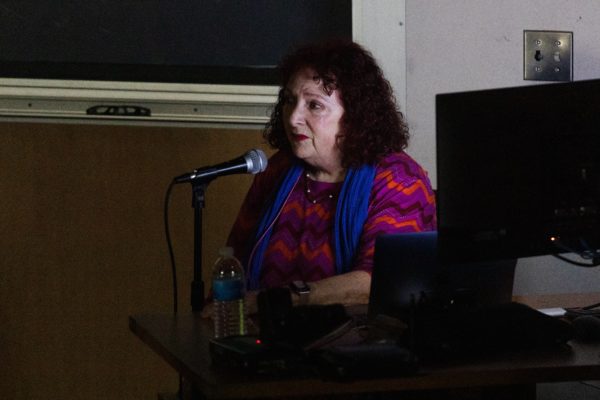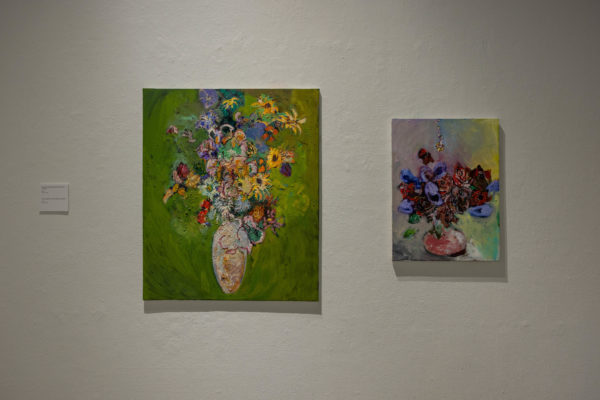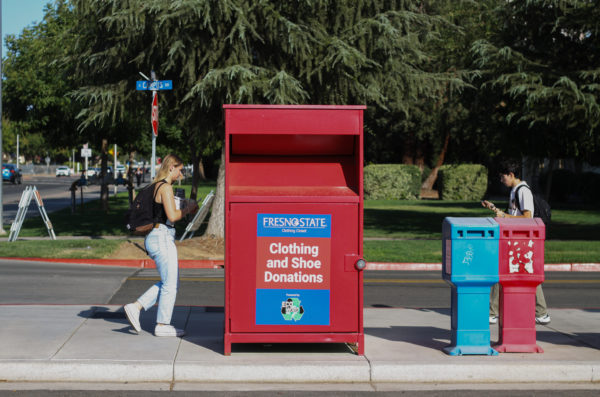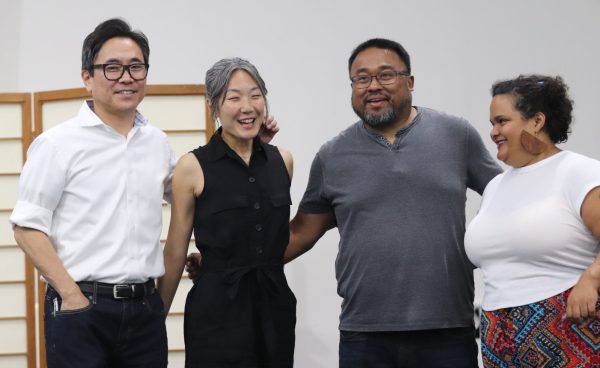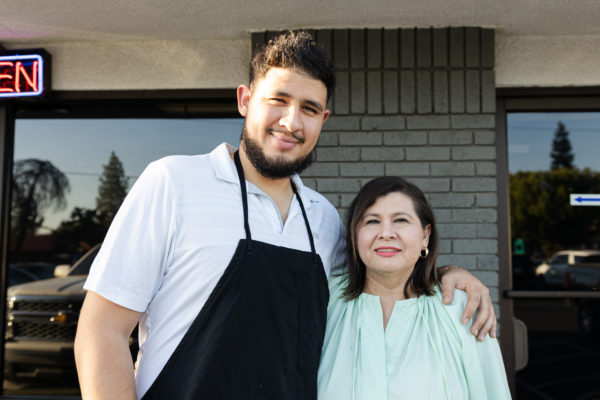Fresno High’s ‘Sustainable Beauty’ fashion show features designs from Fresno State student and alumna
At the end of the show, both student and adult divisions were judged and awarded either prom tickets, for students, or a gift card, for adults. The submissions from left to right: Fresno High School’s Gender Sexuality Alliance club, Autism Inclusion Program, Full Circle Thrift, and Talene Karkazian. (Sarah Delgado/The Collegian)
Mar 25, 2023
Jessee Robinson is a criminology student at Fresno State with a talent for crafting fashion out of sustainable materials. Her brand, Longhorn Leather Co., specializes in purses, jackets and wallets with an eco-friendly cause behind it.
One of her designs is a leather jacket with a cow-print detail and brown waist belt. Robinson was inspired by western style with a touch of formal flair.
“I wanted to create items that would make the wearer feel confident and beautiful while simultaneously being useful and mindful of the environment,” Robinson said.
Her work was featured in Fresno High School’s “Sustainable Beauty” fashion show on March 18, which combines student and adult designers to craft garments using recycled items. The garments were made from bubble wrap to CDs, and also upcycled fast fashion.
Sustainable fashion aims to give new life to old, fast-fashion pieces.
Fresno has done sustainable fashion before with events such as Trashique, but “Sustainable Beauty” focused on students’ works.
Robinson always had a knack for fashion from a young age, and is also conscious about the environment.
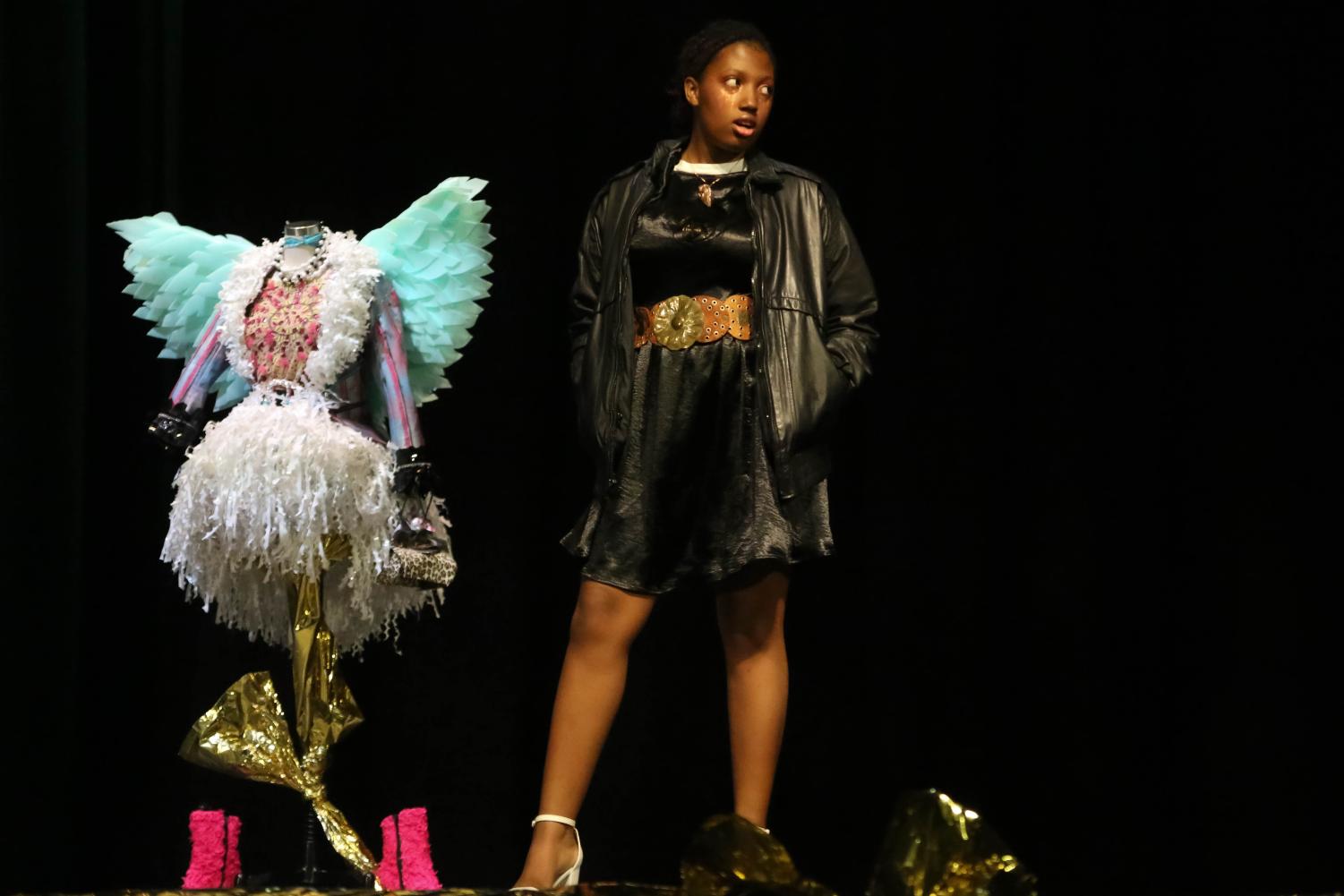
Sustainability is just one thing that motivates her to create.
“It is incredibly important for us as humans to adopt sustainability. In recent years, there has been a decline in the quality of life on our planet due to the increasing amount of consumption of products, such as clothing. If sustainability becomes more prevalent, there will be better conditions around the world,” Robinson said.
This is more than just a quick trend in the fashion industry. More fashion houses vowed to reduce waste and others offered eco-friendly wear, such as Loewe’s Spring/Summer 23 collection of grass garments.
Robinson said sustainable clothing will outgrow fast fashion because more people are learning about the environmental dangers of fast fashion and textile waste. “With all the recent pushes to have a greener planet, I believe there will be a substantial shift in fashion purchases,” Robinson said.
Talene Karkazian, Fresno State alumna and designer from Trashique, returned to debut five new pieces at “Sustainable Beauty.”
For one of her works, Karkazian upcycled a quinceñera dress and a redesigned jacket decorated with antique charms, creating a new red dress out of older clothing.
Her other pieces included: a black bodice and mismatched textile shirt with lace trimmings, an asymmetrical polka-dot dress with a layered skirt, a deconstructed vest paired with an upcycled sporty dress, and a jeweled bustier top finished with denim.
Her creative inspiration derives from her grandmother in Lebanon.
“When there was war, they closed down everything, and so she was making her babies’ wedding dresses with whatever she had. That’s how I learned. She always taught me to use what you have and make it look good,” Karkazian said.
Following in her grandma’s footsteps, Karkazian also makes wedding dresses. She also runs an Instagram account dedicated to upcycled clothing. Currently, she is a professor at Fresno City College.
“Truthfully, there’s a lot of companies now that aren’t sustainable, like H&M [and] Forever 21,” Karkazian said. “A misconception is that companies say they’re sustainable. Look into it. Don’t just trust them.”
While pursuing her master’s degree at California State University, Northridge, Karkazian did her thesis on the upcycling of wedding dresses while also evaluating the pollution caused by textile waste.
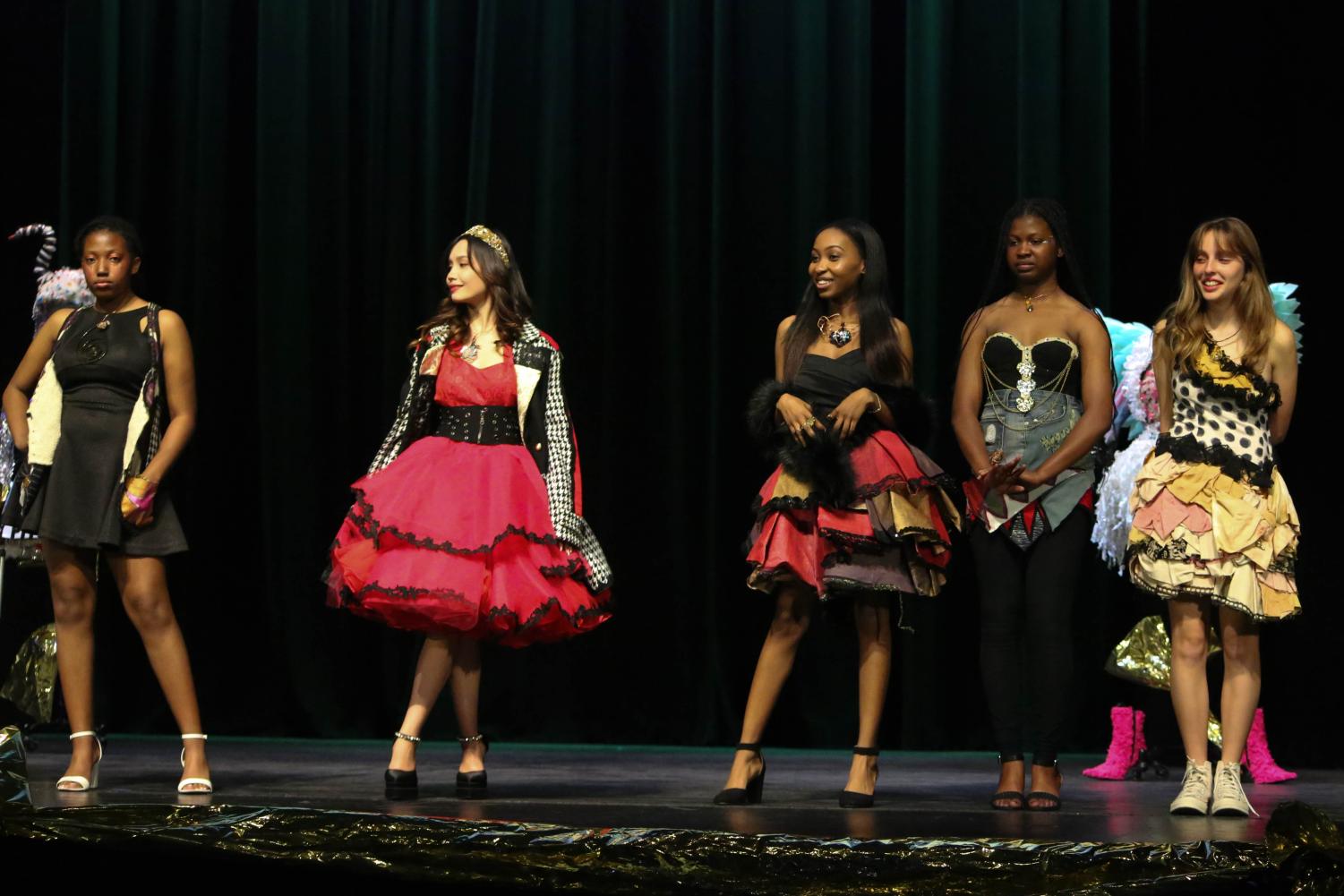
In an article by Dielle Lundberg and Julia Devoy of Boston University, 15% of used textiles are recycled while 50% is shipped to other countries’ landfills.
Jene D’Ambrosio, creator of Eco World and a judge for “Sustainable Beauty,” said fast fashion is detrimental to the environment.
“Our company recycles 2 million pounds [of garments] a month,” D’Ambrosio said.
She noted that Eco World uses closed-loop business practices, which is when businesses reuse the same materials to create new products.
D’Ambrosio’s company also offers “Just Porch It,” which is a free home-pickup service for unwanted items to be recycled for other uses.
“With California legislation, textiles will be illegal to be put into landfills,” D’Ambrosio said.
Senate Bill 707 was introduced by California Sen. Josh Newman. If passed, it would “create a statewide collection and recycling program for textiles,” according to Newman’s website.
“Under SB 707, producers of clothing and other textiles will be required to implement and fund an extended producer responsibility (EPR) program that will enhance recycling and increase reuse,” it said in the website.
D’Ambrosio said that thrift stores should be transparent about their recycling practices with consumers.
D’Ambrosio hopes events such as “Sustainability Beauty” will be helpful, not only in promoting sustainability but also building a community for creators as well.
“Next year we’re going to continue growing. We’re going to continue marketing it. We’re going to continue bringing in designers and artists and just bringing awareness to this,” D’Ambrosio said.



